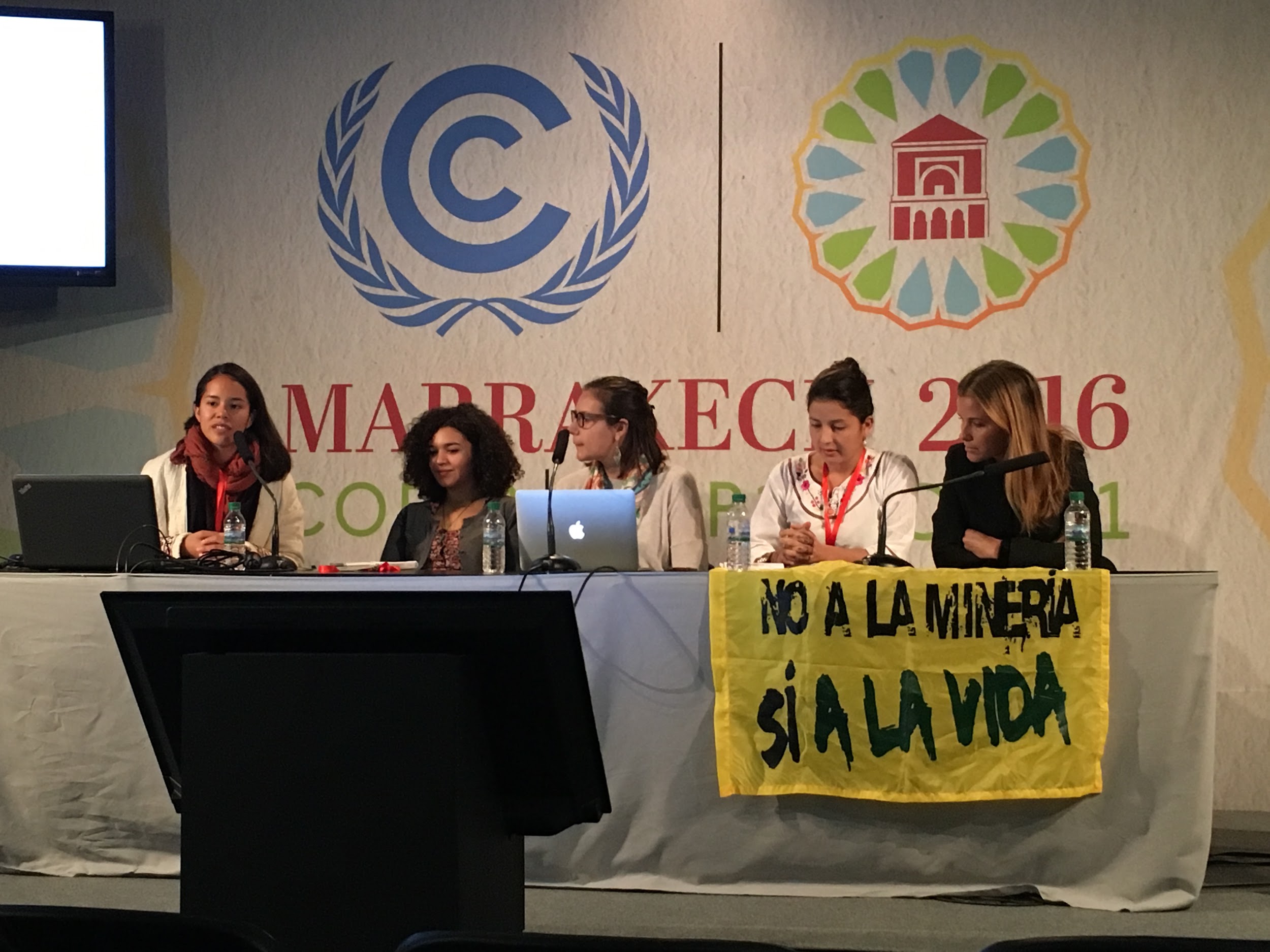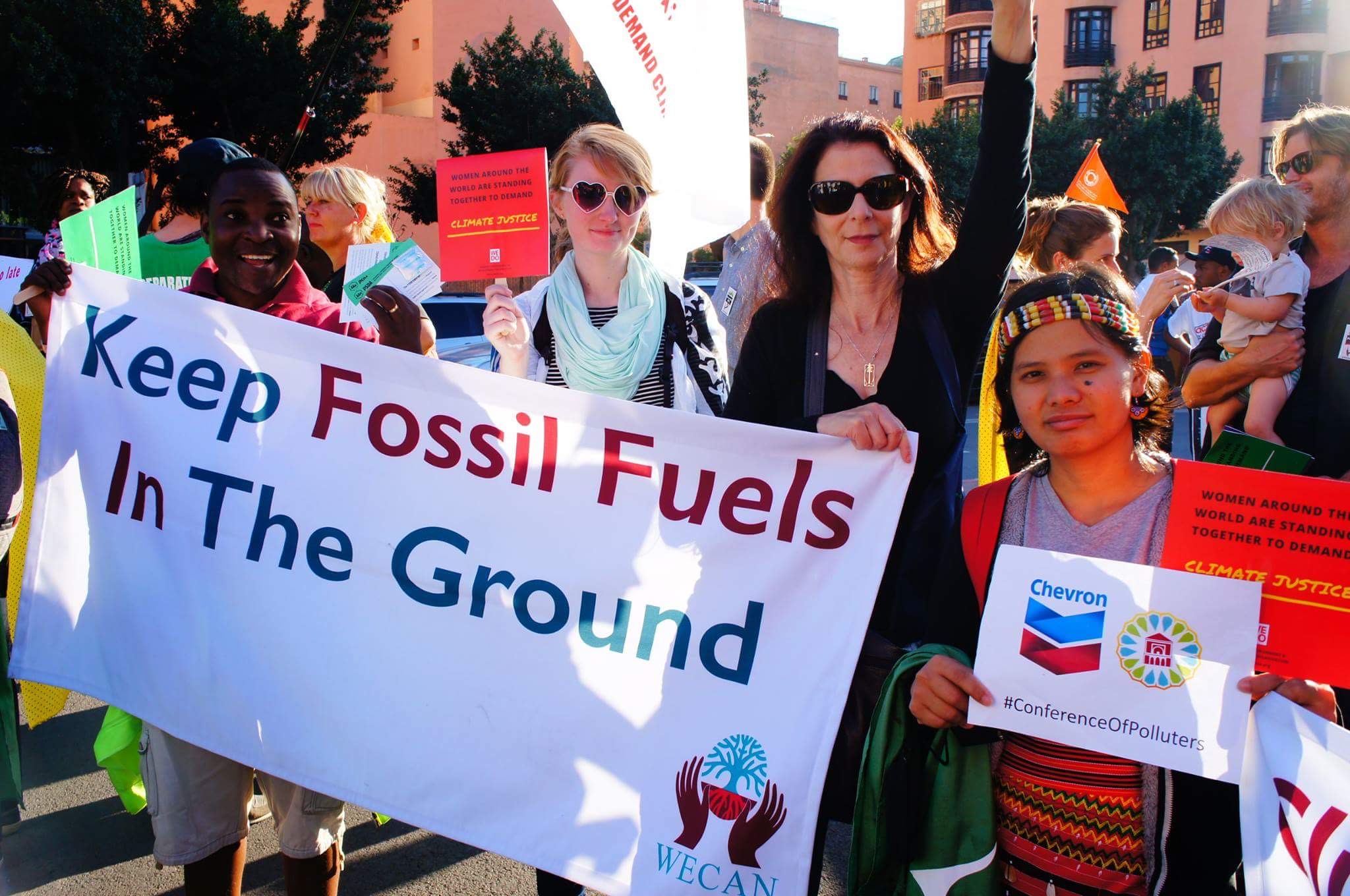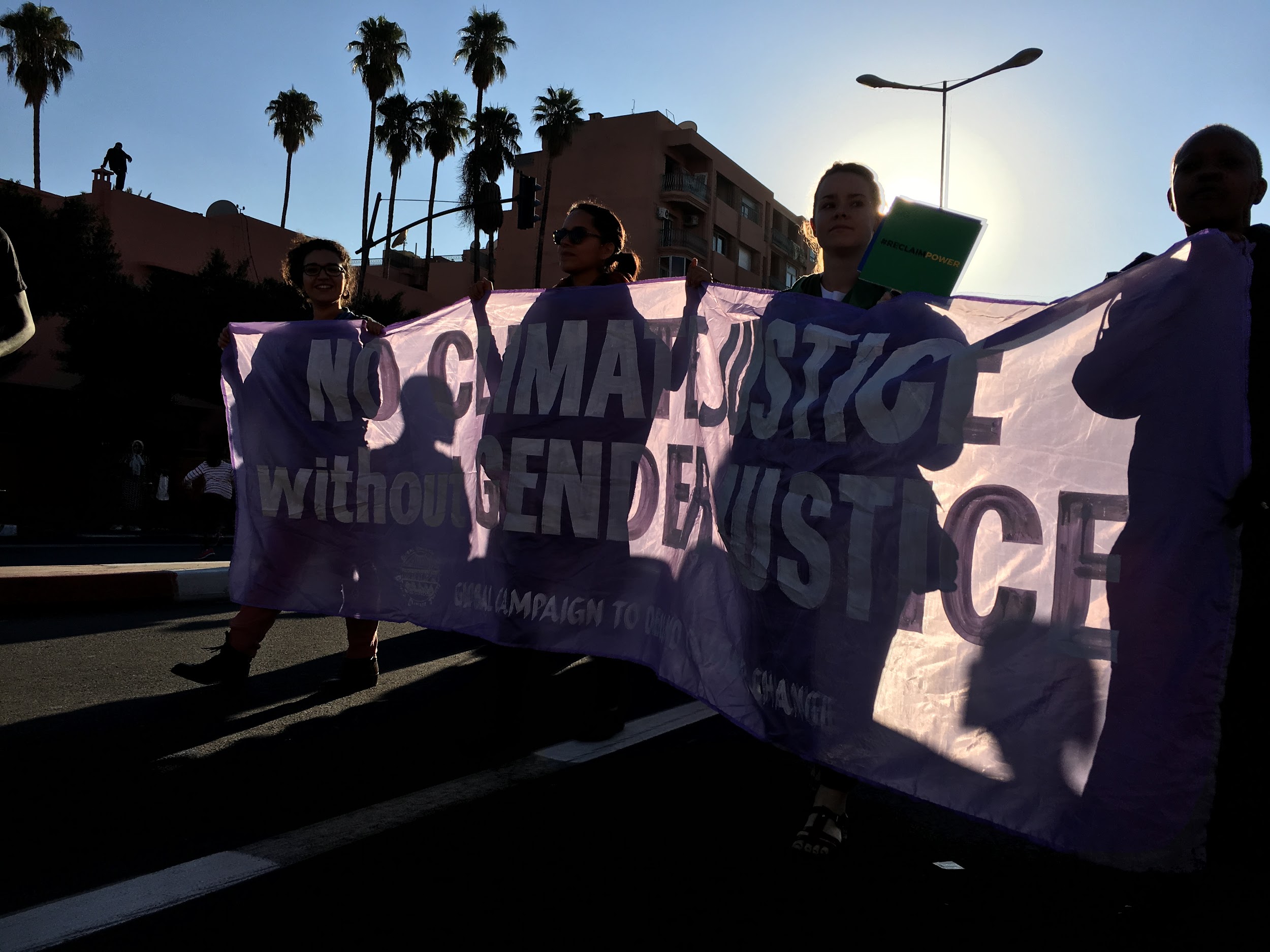
Photo credit: Jessica Olson
“We need young feminist climate activists now more than ever. We bring our hope and our creativity to our movements.” - Maria Antonia Recinos Ayala, feminist activist at COP22 from El Salvador.
This sentiment from young feminist activists from Morocco, Peru, and El Salvador during a panel yesterday on Young Feminist Day at COP22, the annual international climate conference, continues to ring throughout the conference. Today, November 15, marks the 5th official Gender Day at the Conference of Parties (COP), the meeting of officials and civil society to the United Nations Climate Negotiations (UNFCCC). Each year, women and allies from across the globe use Gender Day to call attention to the fact that women of many identities are among the most impacted by climate change.
Photo Credit: Sierra Club
Advocating as women for women’s human rights within the international climate processes does not only mean talking about vulnerabilities. It means talking about the ways in which women, particularly young women, are already leading the way to a livable planet based on equity.
Given the vast shift in international political dynamics in the past year, such as Brexit and the election of Donald Trump, this Gender Day has taken a tone that has not been seen in the past. There is more of a feeling of urgency to not be complacent with false solutions (such as clean coal) and calling those false solutions out. Women around the world have long been advocates for more sustainable economies and environmental practices that not only better our planet, but also ensure the human rights of women and those along the LGBTQI spectrum.
The Lima Work Plan, the historic gender decision decided in 2014 that confirmed the importance of gender equality in the UNFCCC process, has been renewed this conference to much celebration. But the advocates attending the COP know that solutions will not exclusively come from agreements. Our movements and work in our communities, such as building alternatives to fossil fuel infrastructure and guiding inherited agricultural practices, will shape and guide the outcomes promised in policies agreed upon within the UNFCCC process.

Photo courtesy of our partners at WECAN.
We know that in order to reach a 1.5-degree target within the Paris climate agreement, we cannot silo gender equity in our means of reaching this target, we must include it in all aspects of climate agreements through including women’s voices in the decision making process.
In a just transition toward a 1.5 degree threshold, the people most impacted by climate disruption should have the opportunity to determine their energy needs and sources and have access to finance. A world built on equity includes the self determination of women and other most impacted communities such as youth, indigenous, and LGBTQI peoples (who can also be women) by their participation the political processes of their local, national, and international climate policies. With women constituting less than 35 percent of total climate negotiators at each of the past COPs, women are finding alternatives to make their voices heard in this international process - such as actions, skill sharing, and events on Gender Day and throughout the two-week conference.

Photo Credit: Jessica Olson
So today, let’s think about how we can include everyone’s identities in the grassroots and grasstops work that we’re doing to protect our climate. As we say, there is no climate justice without gender justice.
Happy Gender Day! Hug a feminist today.